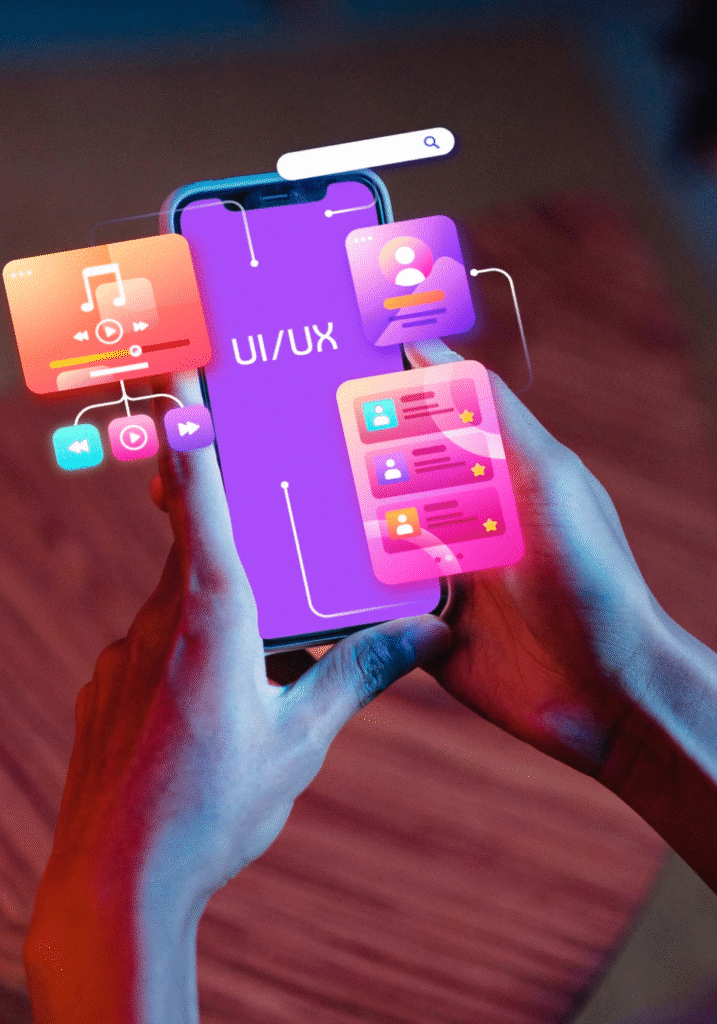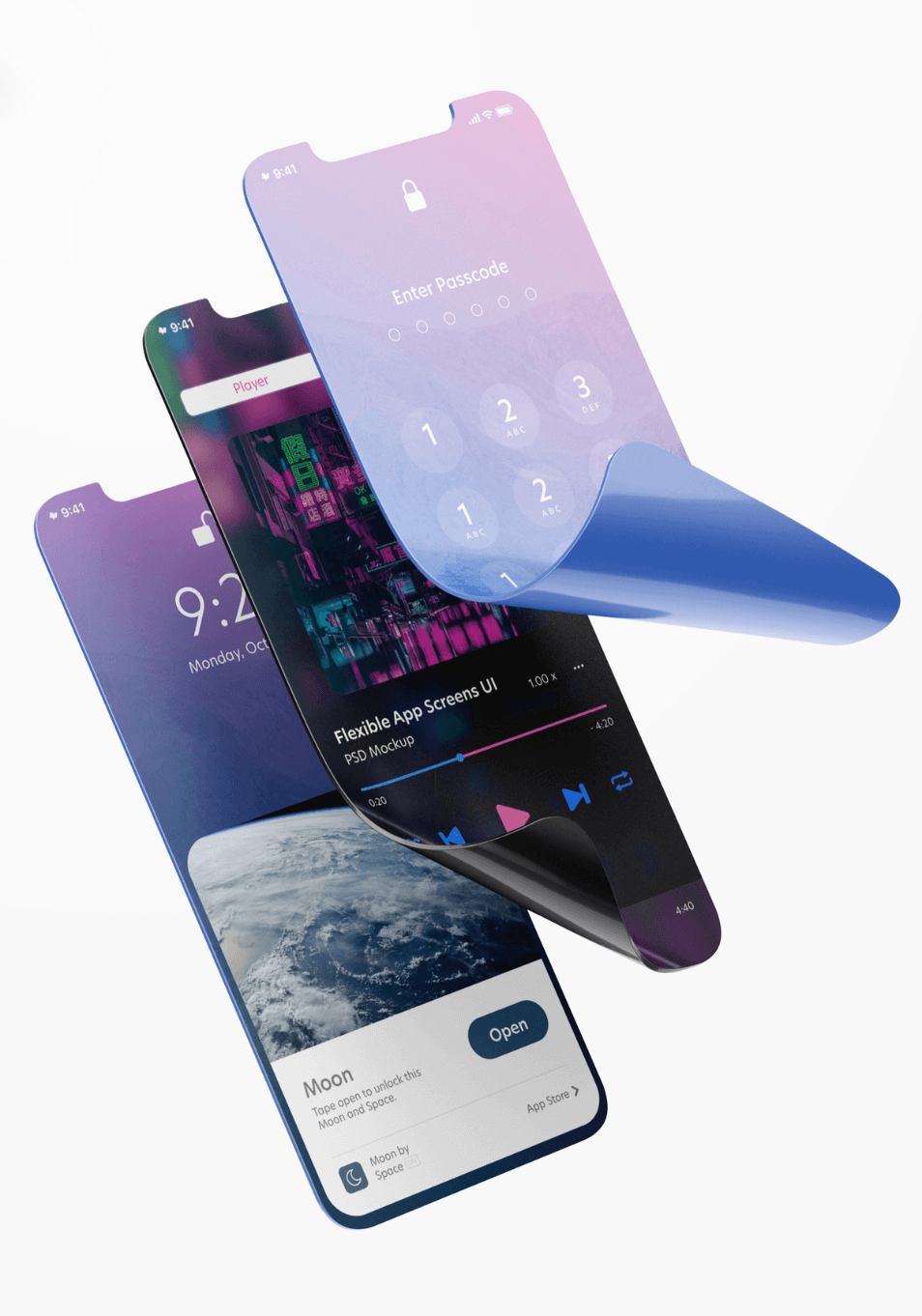Table of Contents
Mobile app development continues to evolve at an unprecedented pace, driven by advances in technology, user demands, and the need for improved experiences. As we look ahead to 2024, new trends are emerging that will shape the future of mobile apps, from AI integration to 5G connectivity. In this blog, we’ll explore the 10 top mobile app development trends to watch in 2024, helping businesses and developers stay ahead in a competitive market.
AI-Powered Mobile Apps
Artificial Intelligence (AI) is transforming mobile app development, making apps smarter, more responsive, and capable of learning from user behavior. AI-powered features such as natural language processing (NLP), image recognition, and predictive analytics are becoming more common in apps, enhancing personalization and user engagement.
- Why It Matters: AI helps mobile apps deliver more tailored experiences by analyzing data in real-time, leading to improved user satisfaction and retention.
- Future Impact: Expect AI integration in apps to grow, enabling features like voice assistants, AI chatbots, and predictive content suggestions.
5G Technology for High-Speed Mobile Apps
With the global rollout of 5G technology, mobile apps in 2024 will benefit from lightning-fast download speeds, low latency, and enhanced connectivity. 5G will revolutionize app experiences by supporting real-time communication, high-quality video streaming, and AR/VR applications.
- Why It Matters: 5G’s faster connection speeds will enable smoother and more interactive experiences, especially for gaming apps, streaming services, and IoT devices.
- Future Impact: Developers can create more immersive and responsive apps, pushing the boundaries of mobile app functionality.

Augmented Reality (AR) and Virtual Reality (VR) Experiences
AR and VR technologies have already made significant inroads into mobile app development, but their usage will explode in 2024. From e-commerce apps allowing users to “try on” products virtually to gaming apps creating immersive environments, AR/VR will redefine how users interact with mobile apps.
- Why It Matters: AR and VR will enhance user engagement by creating interactive and immersive app experiences that are more than just visual.
- Future Impact: Expect AR/VR to become integral to apps in industries like retail, real estate, and entertainment, driving higher customer engagement.
Low-Code and No-Code Development Platforms
The demand for faster app development has led to the rise of low-code and no-code platforms, making it easier for non-developers to create mobile apps. These platforms allow businesses to build apps without extensive coding knowledge, reducing development time and costs.
- Why It Matters: Low-code and no-code platforms democratize app development, allowing more businesses to enter the mobile app market with minimal resources.
- Future Impact: More companies will leverage these platforms to create apps quickly, leading to increased innovation and a surge in mobile applications.
Blockchain in Mobile App Development
Blockchain technology is gaining momentum in mobile app development, particularly for apps that handle sensitive user data, payments, or transactions. Blockchain ensures data security, transparency, and immutability, making it ideal for industries like finance, healthcare, and supply chain management.
- Why It Matters: Blockchain provides a secure framework for mobile apps, offering decentralized data storage, enhanced security, and fraud prevention.
- Future Impact: Blockchain will play a crucial role in fintech apps, mobile wallets, and any app requiring secure transactions.
Internet of Things (IoT) Integration
The Internet of Things (IoT) is becoming a key trend in mobile app development as more devices become connected. From smart homes and wearable devices to smart cities, IoT enables mobile apps to control and monitor connected devices, providing real-time insights and automation.
- Why It Matters: IoT-powered apps offer convenience and efficiency by allowing users to control devices remotely, improving everyday functionality.
- Future Impact: IoT will continue to expand, with mobile apps becoming central to managing smart homes, vehicles, and health devices.
Cloud-Based Mobile Apps
Cloud computing has already become a foundation for modern app development, and its role in mobile apps will only increase in 2024. Cloud-based mobile apps allow users to store data and access features without overloading their device storage. This leads to faster, lighter apps with enhanced performance.
- Why It Matters: Cloud integration allows apps to be more scalable, secure, and reliable while offering seamless access to data across devices.
- Future Impact: More businesses will adopt cloud-based apps to provide better user experiences, data synchronization, and cost efficiency.
Mobile Payments and Mobile Wallets
As mobile commerce continues to grow, mobile payment solutions are becoming increasingly integrated into mobile apps. Digital wallets like Apple Pay, Google Pay, and PayPal are simplifying transactions, making secure and fast mobile payments more accessible than ever.
- Why It Matters: With more users shopping on mobile devices, secure mobile payment options are crucial for user satisfaction and convenience.
- Future Impact: The rise of mobile wallets will drive more businesses to integrate payment gateways directly into their apps, enabling seamless transactions.
Super Apps: One-Stop Solutions
Super apps are becoming increasingly popular, particularly in Asia, and the trend is set to expand globally in 2024. A super app offers multiple services within one platform, such as messaging, payments, e-commerce, and entertainment, making it a one-stop solution for users.
- Why It Matters: Super apps reduce the need for multiple apps by consolidating services into one, offering users convenience and flexibility.
- Future Impact: More companies will explore the development of super apps, especially in e-commerce and fintech sectors.
Wearable Technology and App Integration
With the rise of wearable devices like smartwatches and fitness trackers, mobile app development will increasingly focus on integrating apps with wearable technology. Health and fitness apps, in particular, will benefit from real-time data tracking and monitoring.
- Why It Matters: Apps that integrate with wearables provide real-time insights, improve user health, and offer personalized experiences.
- Future Impact: Expect more mobile apps to integrate with wearables, offering users new ways to track, monitor, and control their health and lifestyle.
Conclusion
As we head into 2024, mobile app development will continue to evolve, with AI, 5G, AR/VR, and blockchain leading the way. Developers must keep pace with these trends to stay competitive and deliver apps that meet user expectations in terms of performance, security, and innovation. By adopting these top mobile app development trends, businesses can create apps that are not only functional but also future-proof.
For more insights on mobile app development or expert guidance on implementing these trends into your apps, follow our blog or get in touch with us today!



